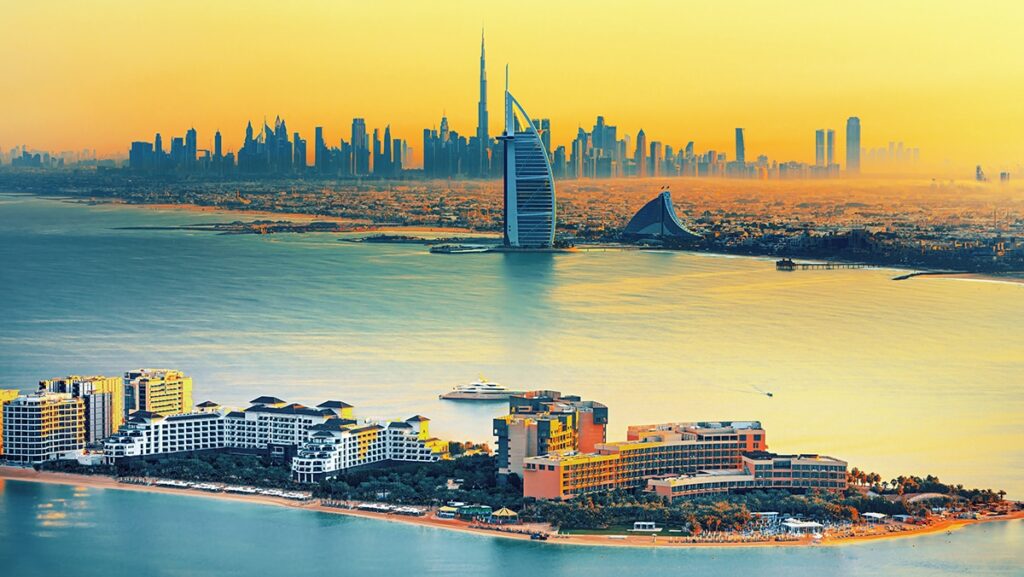Will Dubai Property Prices Rise? Experts Weigh in on the Market’s Future
The Dubai property market is once again in the spotlight, with analysts, investors, and prospective homeowners closely monitoring its growth trajectory. Known for its iconic skyline, luxurious living spaces, and innovative developments, Dubai’s real estate sector has experienced its share of highs and lows. Now, as the UAE’s economy continues to expand and the city cements its status as a global hub, there’s a renewed interest in understanding where property prices are headed. Are they set to rise? Here’s a comprehensive look at the key factors shaping Dubai’s property market and what they mean for buyers, investors, and residents.
A Booming Market: Recent Trends and Performance
Over the past two years, Dubai’s real estate market has shown remarkable resilience and growth. According to a report by Knight Frank, residential property prices in Dubai have surged significantly, especially in the luxury segment. This growth is driven by high demand from foreign investors, particularly in prime areas like Palm Jumeirah, Downtown Dubai, and Dubai Marina. As global economies recover from the pandemic, Dubai has emerged as an attractive destination due to its tax-free income policies, safe environment, and exceptional lifestyle offerings.
The latest data from the Dubai Land Department (DLD) indicates that 2023 saw record-breaking transactions, with values reaching new heights. Areas like Dubai Hills Estate, Business Bay, and Jumeirah Village Circle (JVC) have also seen increased interest from both buyers and renters. Real estate experts suggest that this upward trend may continue as Dubai continues to expand its infrastructure and business-friendly policies, attracting more global investors.

Factors Driving the Surge in Dubai Property Prices
Several factors are contributing to the potential rise in Dubai property prices, making the city a hotspot for real estate investment.
1. Economic Growth and Diversification
Dubai’s efforts to diversify its economy have led to increased demand in the property market. Traditionally reliant on oil, the UAE has been investing heavily in sectors like tourism, technology, and finance, creating a more robust and resilient economy. The government’s initiatives, such as the Dubai Economic Agenda (D33) to double the size of the economy by 2033, indicate a strong commitment to sustainable growth, which is expected to positively impact the real estate sector.

2. Increased Demand from Foreign Investors
Dubai’s open property ownership policies for foreigners have always attracted investors worldwide, but recent geopolitical shifts have amplified this interest. With global investors seeking stable and profitable locations, Dubai stands out due to its strategic location, favorable tax policies, and investor-friendly regulations. European, Asian, and Middle Eastern investors have shown heightened interest, especially as Dubai offers competitive property prices compared to other global cities like New York and London.
3. Visa and Residency Incentives
In recent years, the UAE has introduced several long-term visa options, including the Golden Visa, which allows investors and their families to obtain residency for up to 10 years. This move has not only encouraged investment but has also increased demand for high-end residential properties, as more families see Dubai as a long-term home. These residency programs are seen as a significant driver of the property market, attracting high-net-worth individuals and skilled professionals.
4. Infrastructure and Expo Legacy
Dubai’s ambitious infrastructure projects, from public transport enhancements to the creation of new communities, have bolstered its real estate market. The Expo 2020 site, now renamed District 2020, has become a sustainable urban community, attracting both residents and businesses. This “city of the future” includes housing, business centers, and innovation hubs, which have added significant value to nearby properties. Upcoming projects like the Dubai Creek Tower and various waterfront developments are expected to further elevate the city’s property values.
Are Property Prices Likely to Remain High?
The demand for real estate in Dubai is high, but are prices sustainable in the long run? According to industry experts, while the market might see price stabilization, the overall trend is expected to be positive. Dubai’s property market is more mature than it was a decade ago, with regulations in place to ensure stability. Unlike past speculative bubbles, the current market growth is backed by genuine demand, increased regulation, and a focus on long-term sustainability.
S&P Global Ratings recently suggested that property prices in Dubai might continue their upward trajectory, driven by steady demand and the UAE’s business-friendly environment. However, they note that a slight slowdown may occur due to rising interest rates, making mortgages slightly less accessible. Nonetheless, Dubai’s reputation as a safe and dynamic city is expected to keep interest high among international buyers.
What This Means for Buyers and Investors
For prospective buyers, rising property prices could mean acting sooner rather than later, especially for those interested in prime locations. Investors may see this as an opportunity to enter the market with the potential for solid returns, given the continuous demand from expatriates and investors alike. Experts advise doing thorough research, seeking properties in emerging neighborhoods like Dubai South or Mohammed bin Rashid City, where the price appreciation potential is high.
For renters, the impact of rising property prices can translate into higher rental rates, particularly in popular areas. Recent reports indicate that rental prices have already surged by double digits in certain prime locations, which may encourage renters to consider buying if they plan to stay in Dubai long-term.
The Long-Term Outlook: Growth Amid Stability
While Dubai’s property market remains a dynamic and promising sector, it’s crucial to consider potential risks and challenges. External economic factors, such as global inflation and fluctuating currency rates, can impact the market. Additionally, the UAE’s proactive measures to address climate change, including the shift towards sustainable construction, may introduce new regulations impacting property development costs.
However, Dubai’s real estate sector is expected to maintain its upward trend due to its strong regulatory framework, commitment to innovation, and infrastructure investments. The government’s continuous efforts to attract foreign investment and ensure a high quality of life will likely contribute to a stable and thriving property market for years to come.
Conclusion: A Promising Future for Dubai’s Property Market
In summary, Dubai’s property prices are projected to remain on an upward trajectory due to a combination of economic growth, foreign investment, and government support. While buyers may experience higher prices, the city’s long-term stability and the promise of a luxurious, high-quality lifestyle make it an attractive investment. As Dubai continues to grow and diversify, the real estate sector is likely to benefit, offering ample opportunities for those looking to invest in one of the world’s most vibrant cities.
For now, experts recommend that buyers, renters, and investors stay informed about market trends, work with trusted agents, and consider the long-term benefits of investing in Dubai’s ever-evolving real estate landscape. The city’s outlook remains strong, with its unique blend of innovation, luxury, and economic resilience promising an exciting future for its property market.
Click here to check UAE STORIES website .
Do follow UAE STORIES instagram .













